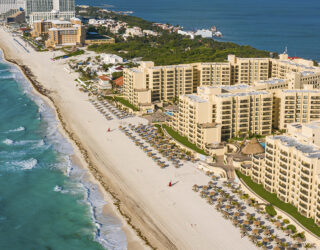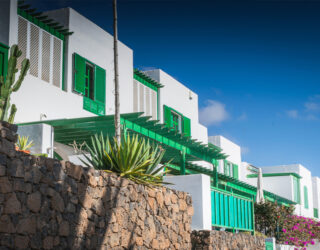Before starting hotel projects, a proper survey is needed of issues like the specific characteristics of the location, along with an assessment of whether there are any planning restrictions or whether a special enabling instrument is required.
Not conducting a correct due diligence process before embarking on a hotel project can often lead to the project not being completed or carry serious economic and legal consequences. Out of the many examples, we focus in this article on a recent case that occurred in Peru, involving the construction of a hotel in Cusco by a well-known international brand which has ended with a legal demolition order confirmed by the Constitutional Court. These types of cases make us value the importance of that prior due diligence process, especially for projects located in areas of historic or cultural interest.
In 2015, construction started in Cusco, Peru, on the foundations of what was to be a new hotel belonging to a well-known international brand. In 2016, building work had to stop, however, after it was identified – according to a report by the Office of the Comptroller General of the Republic and reports by the Cusco Office of Culture (DDC) – that two buildings and part of a third forming part of the National Cultural Heritage had been demolished. Additionally, the building company in charge of the project was found to have taken down up to four pre-Hispanic Inca walls, without caring for their intangible value and also to have carried out work affecting platforms from that period.
Moreover, under the Master Plan for Cusco’s Historic Center (the building was inside the Monumental Area and the Monumental Urban Environment, declared part of the National Cultural Heritage by the Peruvian Government and listed as a World Heritage Site by UNESCO), all buildings in the area are only allowed to be up to two stories high with no basements, whereas the planned building had ten floors in total (- they built seven and two basements, worth as a whole around US$ 40 million at current prices).
According to publicly available information, the building company in charge of the project was fined in 2019 at second instance in the administrative jurisdiction by the Ministry of Culture (MINCUL). Further fines were imposed on it for destruction of the National Cultural Heritage, as well as others for breaching the allowed maximum gross floor area, and another penalty for not having applied to the Ministry of Culture for registration of the archeological assets found during the excavation work. Those fines added up to several million dollars.
The Anti-Corruption Public Prosecution Service ordered a preliminary investigation to be opened against former public officials at the Cusco Office of Culture (DDC) and the Provincial Municipality for allowing the project to be built.
In September 2019, the Fifth Civil Court attached to the Cusco High Court of Justice partially upheld an appeal for constitutional protection filed by the civil association that first reported the facts, against the Ministry of Culture, the Cusco Provincial Municipality and the building company in charge of the project. The judgment ordered demolition of the built structure and held that the walls and platforms had to be restored. In the enforcement process for that judgment, the parties involved brought separate appeals for constitutional review which were heard by the Constitutional Court.
In May 2023, the Constitutional Court delivered a decision in proceeding no 03727-2021-PA/TC, with an order to the civil court for the demolition ordered in September 2019 to be carried out and for a new technical report to be drawn up to specify the comprehensive restoration activities to be performed on the affected pre-Hispanic archeological and Inca walls. This decision was later clarified by a decision delivered in October 2023, following a request filed by the legal department at the Ministry of Culture.
Recently, in March 2024, after the building work had been at a standstill for eight years, the Fifth Civil Court attached to the Cusco High Court, acting as instructed by the Constitutional Court, delivered a decision ordering performance of the demolition of the built structure, and granting the Cusco Office of Culture thirty days to draw up a technical report on restoration of the heritage assets. Additionally, the court had determined that the Ministry of Culture, though the Cusco Office of Culture and the Provincial Municipality would have to cover the expenses associated with the demolition.
Far reaching repercussions
As you can see, this case has taken years of debate in court, and brought both administrative fines and criminal investigations, besides causing a loss of value of the investment. This all brings to mind that it is always important to carry out an adequate due diligence process, and especially a survey of hotel project sites, before the building work starts. This last point is particularly important if the projects are sought to be carried out in countries, like Peru, with a rich historic and cultural heritage.
The sectoral rules applicable to hospitality establishments currently allow companies to start their operations before notifying the Ministry of Foreign Trade and Tourism (MINCETUR), unless they wish to hold a specific category – hotel or aparthotel, for example – from the outset, in which case a prior inspection is required by that authority or else the establishment concerned would have to be categorized by a specialist officially registered with the Ministry of Foreign Trade and Tourism. Whatever the case, however, it is essential to analyze at the appropriate time (among other elements): (i) whether there are any municipal planning restrictions (zoning rules, thoroughfares, building parameters, among others); and (ii) whether a special enabling instrument is required (authorization, license, permit, registration among others) by reference to the project site or its characteristics.
That analysis may be used, for example, to define the route to be taken in relation to enabling instruments (such as the Ministry of Culture’s authorization for any work affecting immovable heritage assets, in which case, moreover, the sectoral rules applicable to hospitality establishments have more relaxed infrastructure and service requirements for the categorization of establishments), in an attempt to prevent, as far as possible, any associated risk that could arise at the building stage, and give rise to situations of the type experienced by the hotel in Cusco. Therefore, when planning the construction of a hotel project it will always be advisable to obtain the services of legal advisors or input from any other specialist professions that might be needed to complete that task (i.e. historians, archaeologists, among others).
Administrative and Constitutional Law






